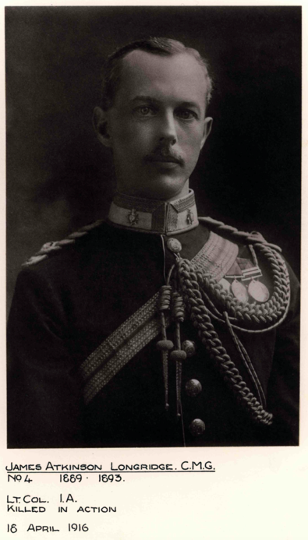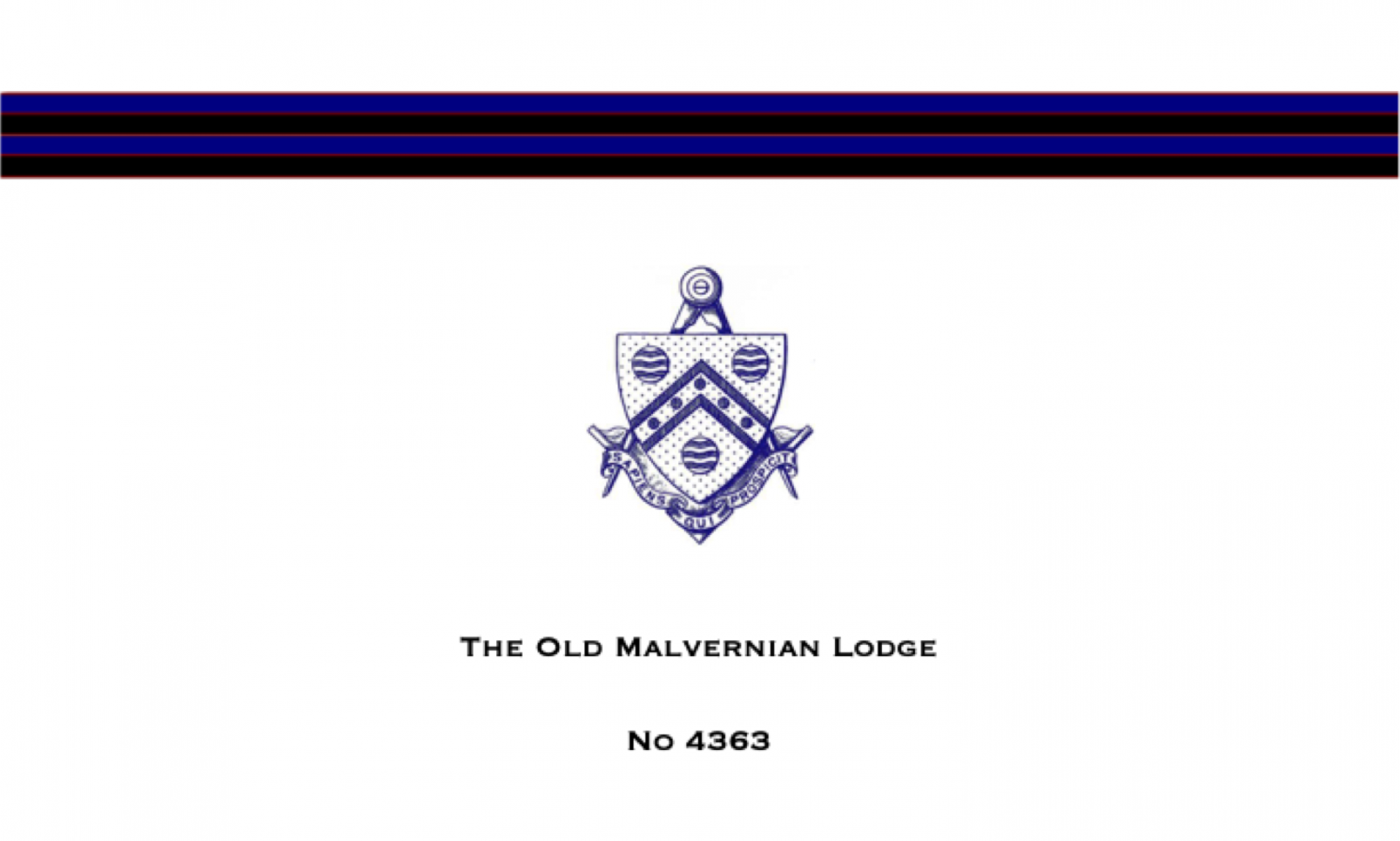
Lt Colonel James Atkinson Longridge CMG 43rd (Erinpura) Regiment was born in 1875, the son of Michael and Frederica Longridge of Linkvretten, Bowdon. He married Alice Lilian Longridge of Bow Cottage, Headley, Hampshire the third daughter of General Berkeley of the Indian Army. They had one daughter. He was the grandson of his namesake, James Atkinson Longridge M Inst CE who, among other achievements, invented the wine gum.
He went to Malvern after the Grange, Folkestone and was in the Army Class and a Minor Scholar. He was a School Prefect, in the Shooting VIII, played football for his House XI for Cricket and was a Lieutenant in Corps.
He went to the RMC Sandhurst, passing out second and gaining a commission with the West Surrey Regiment in 1895. He transferred to the Indian Army in 1897. He served in China in 1900 during the Boxeer campaign, being Mentioned in Despatches, and Somaliland in 1903-04, again being Mentioned. In 1912 he was selected to asist Sir Beauchamp Duff at the India Office. He was promoted Major in 1913 and served as Assistant Secretary Imperial Defence Committee.
On the outbreak of the Great War he was GSO to the Indian Expeditionary Force being made a CMG and a Brevet rank of Lt Colonel.
The following is taken from the Malvernian in 1916:
In September 1914 he gave up his appointments at home to join the Army in France on the Staff of the Indian contingent. In 1915 he was transferred to become Chief Staff Officer of a Division. On August 18th, 1916, he stayed on in the trenches with characteristic thoroughness, to observe some operations which he had directed, and was hit by a stray bullet. He died instantaneously.
The brief record which is given above of Colonel Longridge’s twenty-one years’ service is sufficient to show that in him the School has lost one of her most distinguished soldier sons.
That, if merit met with due reward, he would reach a high position in the Army, was confidently predicted by those who had, in his youth, observed his outstanding qualities of mind and character. He impressed men by his quiet strength and steadfast purpose, his acute and penetrating intellect, his unwearied devotion to duty, his courtesy and charm of manner. Some idea of the estimate formed of him in high places is given by the following extracts from letters written by Generals and public men under whom and with whom he served.
“He was an exceptional man and a splendid staff officer. His division and all who knew him respected him greatly.”
“To the Indian Corps he was invaluable. . . . He seemed assured of a career of great distinction. We can ill spare men of his worth.”
“In him the Service has lost one of its most distinguished officers.”
“His ability, his indefatigable love of work, and his devotion to his profession and scientific equipment for it, marked him out, had he been spared, for high eminence.”
“The country has lost one of the very best officers we had. . . His grasp of broad principles was only excelled by his extraordinary mastery of detail. . . . His was a splendid character, including courage of the highest order, ceaseless perseverance, tact, and great ability.”
We are authorised by Lieut.-Colonel Sir Maurice Hankey, K.C.B., Secretary of the Committee of Imperial Defence, to state that, in the years preceding the war, Colonel Longridge did invaluable work in connection with the arrangements for the preparation for war. The value of Colonel Longridge’s work in this respect was fully recognised by the Prime Minister and the Committee of Imperial Defence, and was rewarded with a C.M.G. Nowhere is Colonel Longridge’s death more deeply felt than in the Committee of Imperial Defence and among his colleagues in the Secretariat, who not only placed the highest value on his professional attainments, but were united to him by bonds of intimate friendship.’
Longridge was initiated into Himalayan Brotherhood Lodge No 459 in India.
